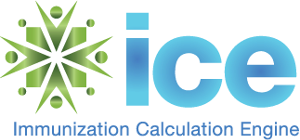SARS-CoV-2
See the following -
Approval Of A Coronavirus Vaccine Would Be Just The Beginning - Huge Production Challenges Could Cause Long Delays
 The race for a SARS-CoV-2 vaccine is well underway. It's tempting to assume that once the first vaccine is approved for human use, all the problems of this pandemic will be immediately solved. Unfortunately, that is not exactly the case. Developing a new vaccine is only the first part of the complex journey that's supposed to end with a return to some sort of normal life. Producing hundreds of millions of vaccines for the U.S. - and billions for the world as a whole - will be no small feat. There are many technical and economic challenges that will need to be overcome somehow to produce millions of vaccines as fast as possible.
The race for a SARS-CoV-2 vaccine is well underway. It's tempting to assume that once the first vaccine is approved for human use, all the problems of this pandemic will be immediately solved. Unfortunately, that is not exactly the case. Developing a new vaccine is only the first part of the complex journey that's supposed to end with a return to some sort of normal life. Producing hundreds of millions of vaccines for the U.S. - and billions for the world as a whole - will be no small feat. There are many technical and economic challenges that will need to be overcome somehow to produce millions of vaccines as fast as possible.
- Login to post comments
Data Management for Large-scale COVID-19 Immunization: This is all not as simple as it seems
 There is a global race for the development of a vaccine for the SARS-CoV-2 virus that causes COVID-19. Finding a vaccine that works and receives approval is only part of the process. There are a series of other steps that need to be taken so that the vaccine can be delivered. These include the mass production of the vaccine, shipment, administration and record-keeping. This may be even more complex as there may be several vaccines. In this article we review some of these issues with a particular focus on the United States.
There is a global race for the development of a vaccine for the SARS-CoV-2 virus that causes COVID-19. Finding a vaccine that works and receives approval is only part of the process. There are a series of other steps that need to be taken so that the vaccine can be delivered. These include the mass production of the vaccine, shipment, administration and record-keeping. This may be even more complex as there may be several vaccines. In this article we review some of these issues with a particular focus on the United States.
- Login to post comments
How Laboratories and their Systems can Weather Natural Disasters and Pandemics
 We are currently experiencing a global pandemic - which, while perhaps included in disaster preparedness Standard Operating Procedures (SOPs) by many labs as a possible disaster, still has caught most the infrastructure and health systems of most nations largely unprepared, and is causing major disruption because it was arguably not seen as one of the most likely events. Disaster preparedness has typically tended to focus on IT and data management risks and/or natural disasters. SOPs center around standard, daily lab safety. The truth is that whatever the odds of a particular disaster, they become 100% once they happen. It's important to have sufficient risk-reduction SOPs in play, and a good Continuity Of Operations Plan (COOP) for each potential scenario to ensure the best chance of coping during the event and recovering afterwards.
We are currently experiencing a global pandemic - which, while perhaps included in disaster preparedness Standard Operating Procedures (SOPs) by many labs as a possible disaster, still has caught most the infrastructure and health systems of most nations largely unprepared, and is causing major disruption because it was arguably not seen as one of the most likely events. Disaster preparedness has typically tended to focus on IT and data management risks and/or natural disasters. SOPs center around standard, daily lab safety. The truth is that whatever the odds of a particular disaster, they become 100% once they happen. It's important to have sufficient risk-reduction SOPs in play, and a good Continuity Of Operations Plan (COOP) for each potential scenario to ensure the best chance of coping during the event and recovering afterwards.
- Login to post comments
Medicines for Malaria Venture Releases Report on how R&D Partnerships Serving Neglected Communities have Developed Dozens of Life-Saving Innovations Since 2010
 The public-private initiatives that contributed to COVID-19 vaccine and drug development have showcased a model for accelerating biomedical innovation. This is another powerful example of how public-private partnerships have established themselves as powerhouses for fighting global health threats. According to a new report launched today from a group of 12 product development partnerships (PDPs), over the last decade, such alliances have brought to market 66 new drugs, vaccines, diagnostics and other technologies for a number of diseases—including tuberculosis, malaria, HIV, meningitis and sleeping sickness. These innovations have reached and benefitted more than 2.4 billion people in low-income countries.
The public-private initiatives that contributed to COVID-19 vaccine and drug development have showcased a model for accelerating biomedical innovation. This is another powerful example of how public-private partnerships have established themselves as powerhouses for fighting global health threats. According to a new report launched today from a group of 12 product development partnerships (PDPs), over the last decade, such alliances have brought to market 66 new drugs, vaccines, diagnostics and other technologies for a number of diseases—including tuberculosis, malaria, HIV, meningitis and sleeping sickness. These innovations have reached and benefitted more than 2.4 billion people in low-income countries.
- Login to post comments
Open Source Immunization Forecaster Updated to Support Pfizer COVID Vaccine
 On December 15, 2020, HLN released a new version (v1.26.2) of the Immunization Calculation Engine (ICE) in support of the Pfizer COVID vaccine. ICE is a state-of-the-art open source software system that provides clinical decision support for immunizations for use in Immunization Information Systems (IIS), Electronic Health Record (EHR), and Personal Health Record (PHR) Systems. Version 1.26.2 includes support for new COVID-19 Vaccine Group (with the Pfizer vaccine only). A subsequent release, coming soon, will likely add support for the Moderna vaccine. Read More »
On December 15, 2020, HLN released a new version (v1.26.2) of the Immunization Calculation Engine (ICE) in support of the Pfizer COVID vaccine. ICE is a state-of-the-art open source software system that provides clinical decision support for immunizations for use in Immunization Information Systems (IIS), Electronic Health Record (EHR), and Personal Health Record (PHR) Systems. Version 1.26.2 includes support for new COVID-19 Vaccine Group (with the Pfizer vaccine only). A subsequent release, coming soon, will likely add support for the Moderna vaccine. Read More »
- Login to post comments
Telework Challenges in a Mobile Device World Facing a Pandemic
 The coronavirus pandemic is affecting all walks of life. Hospitals and medical professionals are on high alert. Schools are closing. Professional sports teams are playing in empty stadiums and, in some cases, not at all. Companies and governments are reviewing how to reduce health risks while maintaining productivity. An obvious response is to expand their telework programs for employees. Telework or remote worker programs have their challenges, and the concern is genuine for the federal government. There is the need to re-work policies, stretch budgets, deal with security concerns, and a big part of the challenge is the changing workforce as smartphones – rather than PCs and landlines of yesteryear – are the tools of choice.
The coronavirus pandemic is affecting all walks of life. Hospitals and medical professionals are on high alert. Schools are closing. Professional sports teams are playing in empty stadiums and, in some cases, not at all. Companies and governments are reviewing how to reduce health risks while maintaining productivity. An obvious response is to expand their telework programs for employees. Telework or remote worker programs have their challenges, and the concern is genuine for the federal government. There is the need to re-work policies, stretch budgets, deal with security concerns, and a big part of the challenge is the changing workforce as smartphones – rather than PCs and landlines of yesteryear – are the tools of choice.
- Login to post comments
University of Chicago Awarded $20 Million To Host COVID-19 Medical Imaging Center
 A new center hosted at the University of Chicago-co-led by the largest medical imaging professional organizations in the country-will help tackle the ongoing COVID-19 pandemic by curating a massive database of medical images to help better understand and treat the disease. Led by Prof. Maryellen Giger of UChicago Medicine, the Medical Imaging and Data Resource Center (MIDRC) will create an open-source database with medical images from thousands of COVID-19 patients. The center will be funded by a two-year, $20 million contract from the National Institute of Biomedical Imaging and Bioengineering at the National Institutes of Health (NIH).
A new center hosted at the University of Chicago-co-led by the largest medical imaging professional organizations in the country-will help tackle the ongoing COVID-19 pandemic by curating a massive database of medical images to help better understand and treat the disease. Led by Prof. Maryellen Giger of UChicago Medicine, the Medical Imaging and Data Resource Center (MIDRC) will create an open-source database with medical images from thousands of COVID-19 patients. The center will be funded by a two-year, $20 million contract from the National Institute of Biomedical Imaging and Bioengineering at the National Institutes of Health (NIH).
- Login to post comments
White House Call to Action to the Tech Community on New Open Access Machine Readable COVID-19 Dataset
 Today, researchers and leaders from the Allen Institute for AI, Chan Zuckerberg Initiative (CZI), Georgetown University's Center for Security and Emerging Technology (CSET), Microsoft, and the National Library of Medicine (NLM) at the National Institutes of Health released the COVID-19 Open Research Dataset (CORD-19) of scholarly literature about COVID-19, SARS-CoV-2, and the Coronavirus group. Requested by The White House Office of Science and Technology Policy, the dataset represents the most extensive machine-readable Coronavirus literature collection available for data and text mining to date, with over 29,000 articles, more than 13,000 of which have full text.
Today, researchers and leaders from the Allen Institute for AI, Chan Zuckerberg Initiative (CZI), Georgetown University's Center for Security and Emerging Technology (CSET), Microsoft, and the National Library of Medicine (NLM) at the National Institutes of Health released the COVID-19 Open Research Dataset (CORD-19) of scholarly literature about COVID-19, SARS-CoV-2, and the Coronavirus group. Requested by The White House Office of Science and Technology Policy, the dataset represents the most extensive machine-readable Coronavirus literature collection available for data and text mining to date, with over 29,000 articles, more than 13,000 of which have full text.
- Login to post comments
ATARC Panel: Preventing Data Breaches from the Edge to the Cloud
Join us for this panel, which sets out to discuss how advancements in the federal cloud space, mobility and distributed workforces have driven the focal point for security to shift. Topic experts will discuss lessons learned in successfully implementing cloud methodologies, tools, and techniques in a time of continuous change and telework. Together, panelists explore available and desired solutions to rectify past and pre-empt potential future data breaches, as both citizens and the government agencies serving them embrace “the new normal”.
- Login to post comments
FHIR North 2021
Hosted annually by Mohawk College’s MEDIC, Gevity, Smile CDR, OntarioMD and Canada Health Infoway, FHIR North is the only Canadian Digital Health conference focused on building awareness, knowledge and experience around HL7® FHIR healthcare interoperability standards in Canada. FHIR North is more than just a developer’s conference: our sessions can help build understanding and knowledge for anyone in your organization that wants to understand how this standard can improve patient care and the clinical experience.
- Login to post comments